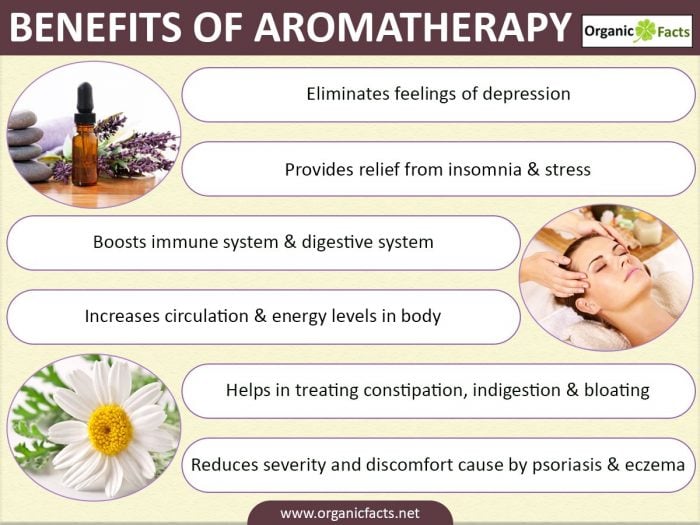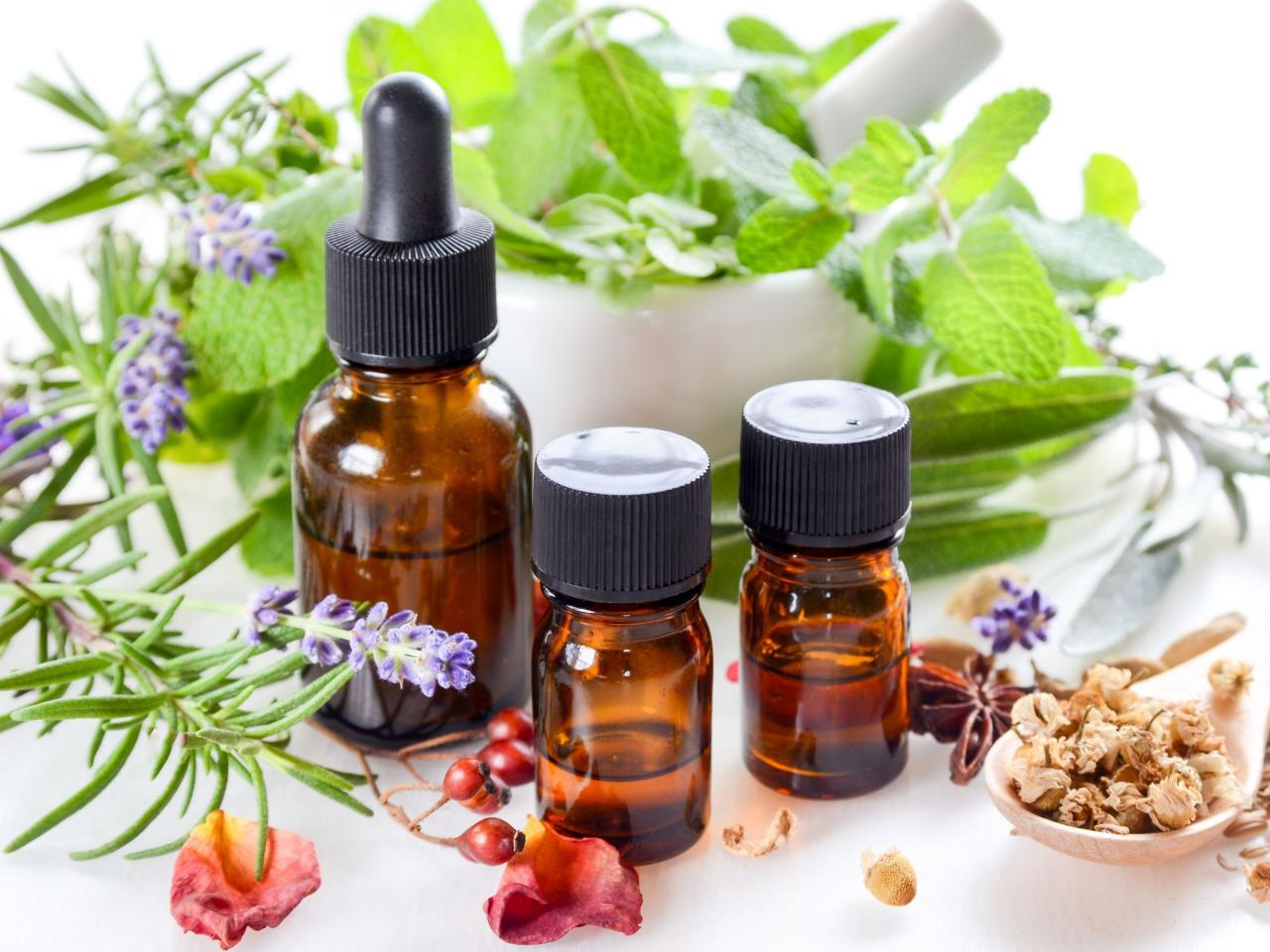Prepare to embark on an aromatic journey as we delve into the fascinating world of aromatherapy. This ancient practice harnesses the therapeutic powers of essential oils, unlocking a treasure trove of benefits that can transform your physical, emotional, and cognitive well-being.
From stress relief to mood enhancement, improved sleep to cognitive stimulation, aromatherapy offers a holistic approach to health and wellness. Let’s explore the myriad ways in which essential oils can enrich your life and unlock your full potential.
Physiological Benefits
Aromatherapy, the therapeutic application of essential oils, offers a range of physiological benefits that have been recognized for centuries. These benefits include stress reduction, improved sleep, and reduced pain.
Essential oils are volatile compounds extracted from plants. When inhaled or applied topically, they interact with the body’s systems, including the respiratory and nervous systems. This interaction triggers various physiological responses that contribute to aromatherapy’s calming and relaxing effects.
Stress Reduction
Aromatherapy has been shown to effectively reduce stress levels. Inhaling essential oils such as lavender, chamomile, or bergamot has been found to lower cortisol levels, a hormone associated with stress. These oils promote relaxation and reduce feelings of anxiety and tension.
Improved Sleep
Aromatherapy can also improve sleep quality. Certain essential oils, such as lavender and valerian, have sedative effects that help promote relaxation and induce sleep. Inhaling these oils before bed can reduce sleep latency, the time it takes to fall asleep, and improve overall sleep quality.
Reduced Pain
Aromatherapy has analgesic properties that can help reduce pain. Essential oils such as peppermint, eucalyptus, and rosemary have anti-inflammatory and pain-relieving effects. These oils can be applied topically or inhaled to alleviate pain from headaches, muscle aches, and other conditions.
Emotional Benefits
Aromatherapy can have a profound impact on our emotions, offering benefits such as improved mood, reduced anxiety, and increased self-esteem. Essential oils, extracted from plants, contain volatile compounds that interact with our olfactory system, triggering emotional responses in the brain.
Certain scents have been found to promote relaxation, uplift spirits, and balance emotions.
Mood Enhancement
Essential oils like citrus fruits (lemon, orange, grapefruit), lavender, and peppermint have mood-boosting properties. These scents stimulate the release of serotonin and dopamine, neurotransmitters associated with happiness and well-being. Inhaling these oils can help alleviate feelings of sadness, fatigue, and irritability, leaving us feeling more positive and energized.
Anxiety Reduction
Aromatherapy can also help reduce anxiety and stress. Essential oils like chamomile, lavender, and bergamot have calming effects that can slow down the heart rate, lower blood pressure, and promote relaxation. These oils can be used in diffusers, applied topically, or inhaled directly to help manage stress, anxiety, and sleep disorders.
Self-Esteem Boost
Certain essential oils, such as rose, jasmine, and sandalwood, have been associated with increased self-esteem and confidence. These scents can help us feel more positive about ourselves, reduce feelings of insecurity, and promote a sense of well-being. Inhaling these oils or using them in baths or massages can help us connect with our inner strength and cultivate a more positive self-image.
Cognitive Benefits

Aromatherapy not only impacts our emotions and physiology but also extends its benefits to our cognitive abilities. Essential oils, when inhaled or applied topically, have been found to stimulate the brain and enhance cognitive function, leading to improved memory, concentration, and focus.
The olfactory bulb, directly connected to the brain’s limbic system, plays a crucial role in this process. When we inhale essential oils, the olfactory receptors in the nose send signals to the limbic system, which is responsible for processing emotions, memory, and behavior.
These signals can trigger physiological and psychological responses that affect our cognitive performance.
Improved Memory
Certain essential oils, such as rosemary and peppermint, have been shown to enhance memory and recall. Studies have demonstrated that inhaling rosemary oil can improve working memory, while peppermint oil has been found to boost long-term memory. These effects are attributed to the oils’ ability to increase acetylcholine levels in the brain, a neurotransmitter involved in memory formation.
Enhanced Concentration
Essential oils like basil and eucalyptus have been found to promote concentration and focus. Basil oil has been shown to improve alertness and reduce mental fatigue, while eucalyptus oil can enhance attention and reduce distractions. These oils stimulate the release of neurotransmitters such as dopamine and norepinephrine, which are involved in regulating attention and focus.
Increased Productivity
Aromatherapy has gained popularity in educational and workplace settings to promote mental clarity and productivity. Studies have shown that diffusing essential oils like lemon and orange in classrooms can improve students’ attention and academic performance. Similarly, diffusing lavender oil in offices has been found to reduce stress and enhance employee productivity.
Health Benefits

Aromatherapy offers a plethora of health benefits, extending beyond relaxation and stress relief. Essential oils possess remarkable therapeutic properties that can support the body’s natural healing processes, reducing inflammation, improving digestion, and boosting immunity.
Anti-inflammatory Effects
Essential oils such as lavender, chamomile, and frankincense possess anti-inflammatory properties. They can help reduce swelling, pain, and inflammation in various conditions, including arthritis, headaches, and skin irritations.
Improved Digestion
Certain essential oils, such as peppermint, ginger, and fennel, can stimulate digestion, relieve nausea, and reduce gas and bloating. They can also help improve appetite and support a healthy digestive system.
Boosted Immunity
Essential oils like tea tree oil, eucalyptus, and rosemary have antiviral and antibacterial properties. They can help strengthen the immune system, reduce the risk of infections, and promote overall well-being.
Applications of Aromatherapy

Aromatherapy is a holistic therapy that harnesses the therapeutic properties of essential oils to enhance physical, emotional, and cognitive well-being. Its applications are diverse, ranging from personal use to healthcare and professional settings.
Incorporating aromatherapy into daily routines is simple. Diffusing essential oils at home can create a calming atmosphere, promote relaxation, and improve sleep quality. Adding a few drops of lavender oil to a warm bath can help reduce stress and anxiety.
Inhaling peppermint oil can invigorate and boost alertness.
In healthcare settings, aromatherapy is increasingly used as a complementary therapy to support conventional treatments. For instance, aromatherapy massage can alleviate pain and discomfort associated with conditions like arthritis and fibromyalgia. Inhalation of certain essential oils, such as eucalyptus and tea tree oil, can help clear nasal congestion and support respiratory health.
In professional settings, aromatherapy is employed to enhance productivity and well-being. Diffusing citrus oils in office spaces can stimulate creativity and reduce stress. In spa and wellness centers, aromatherapy treatments are offered to promote relaxation, rejuvenation, and overall well-being.
Personal Use
- Create a relaxing atmosphere at home
- Promote restful sleep
- Enhance mood and reduce stress
- Alleviate minor aches and pains
- Support skin and hair health
Healthcare
- Support pain management
- Reduce anxiety and stress
- Improve respiratory health
- Enhance mood and cognitive function
- Support wound healing
Professional Settings
- Promote relaxation and well-being in spas and wellness centers
- Enhance productivity and reduce stress in office environments
- Support employee health and well-being
- Create a positive and inviting atmosphere in retail and hospitality settings
Concluding Remarks
As we conclude our exploration of aromatherapy’s benefits, it’s evident that essential oils are not merely fragrant enhancements but powerful tools for optimizing our well-being. Whether you seek relaxation, rejuvenation, or enhanced cognitive function, aromatherapy provides a natural and effective solution.
Incorporating aromatherapy into your daily routine can be as simple as diffusing essential oils in your home, adding them to your bath, or applying them topically. Embrace the aromatic embrace of essential oils and unlock a world of benefits that will leave you feeling revitalized, balanced, and connected to your inner self.